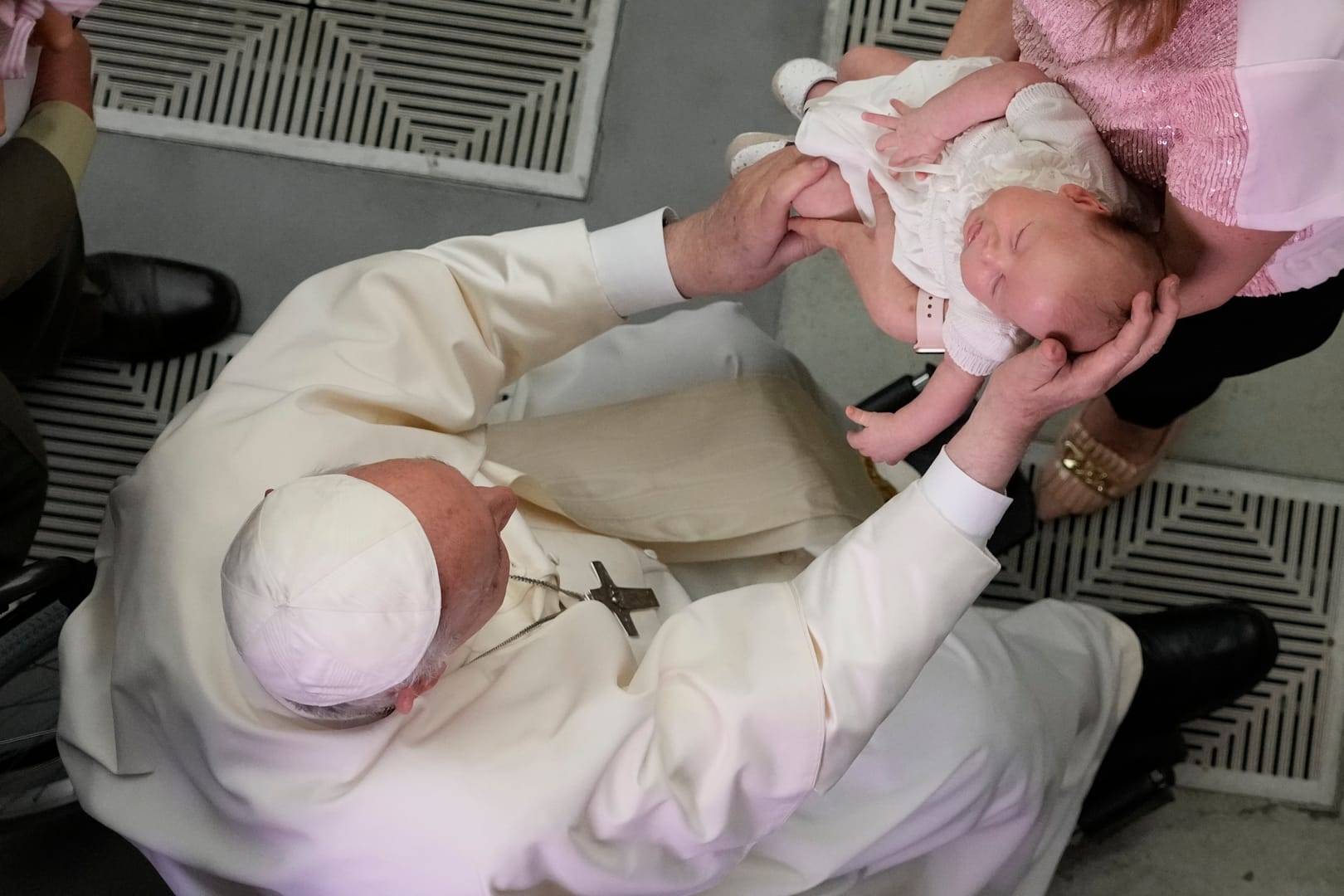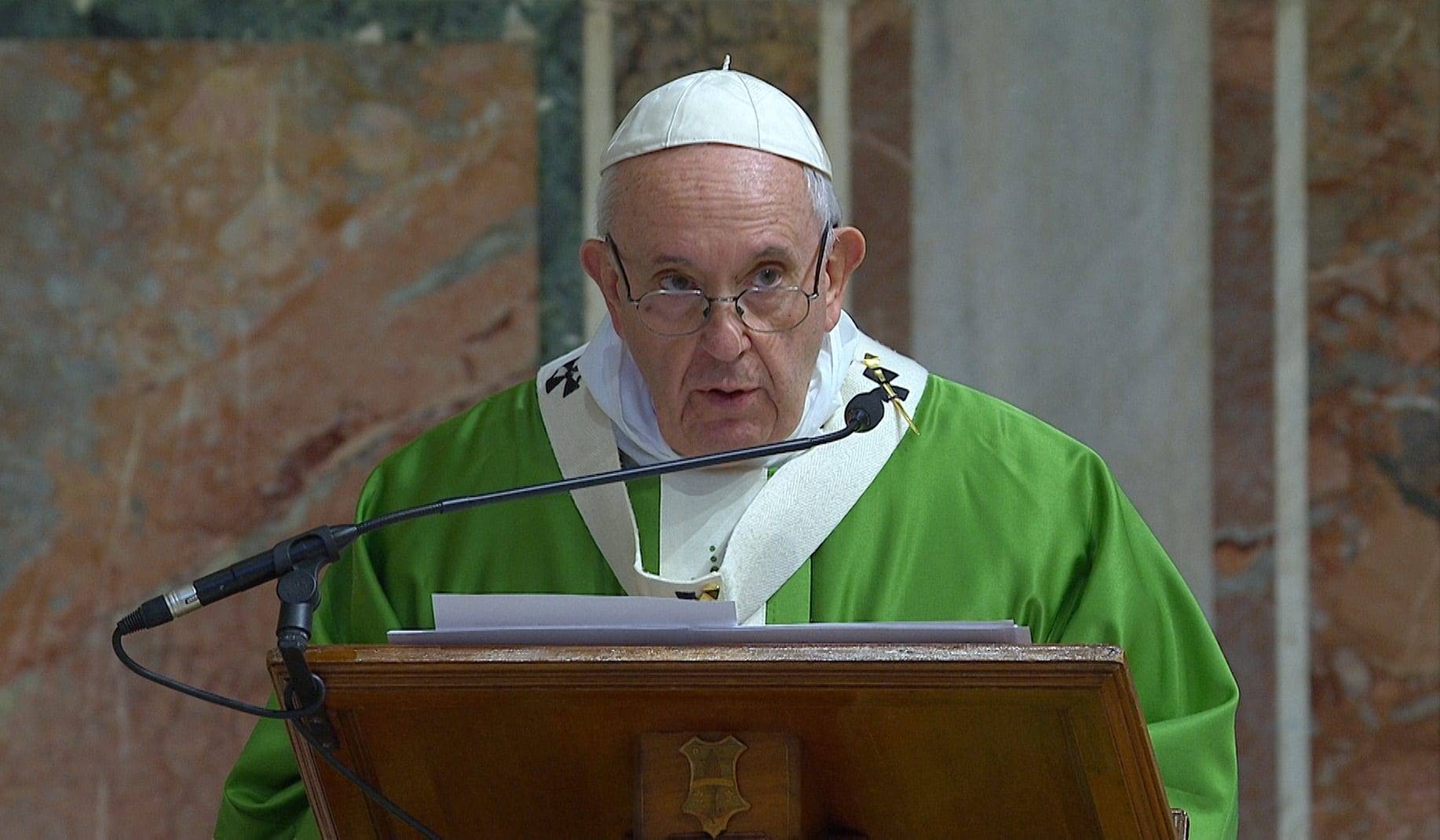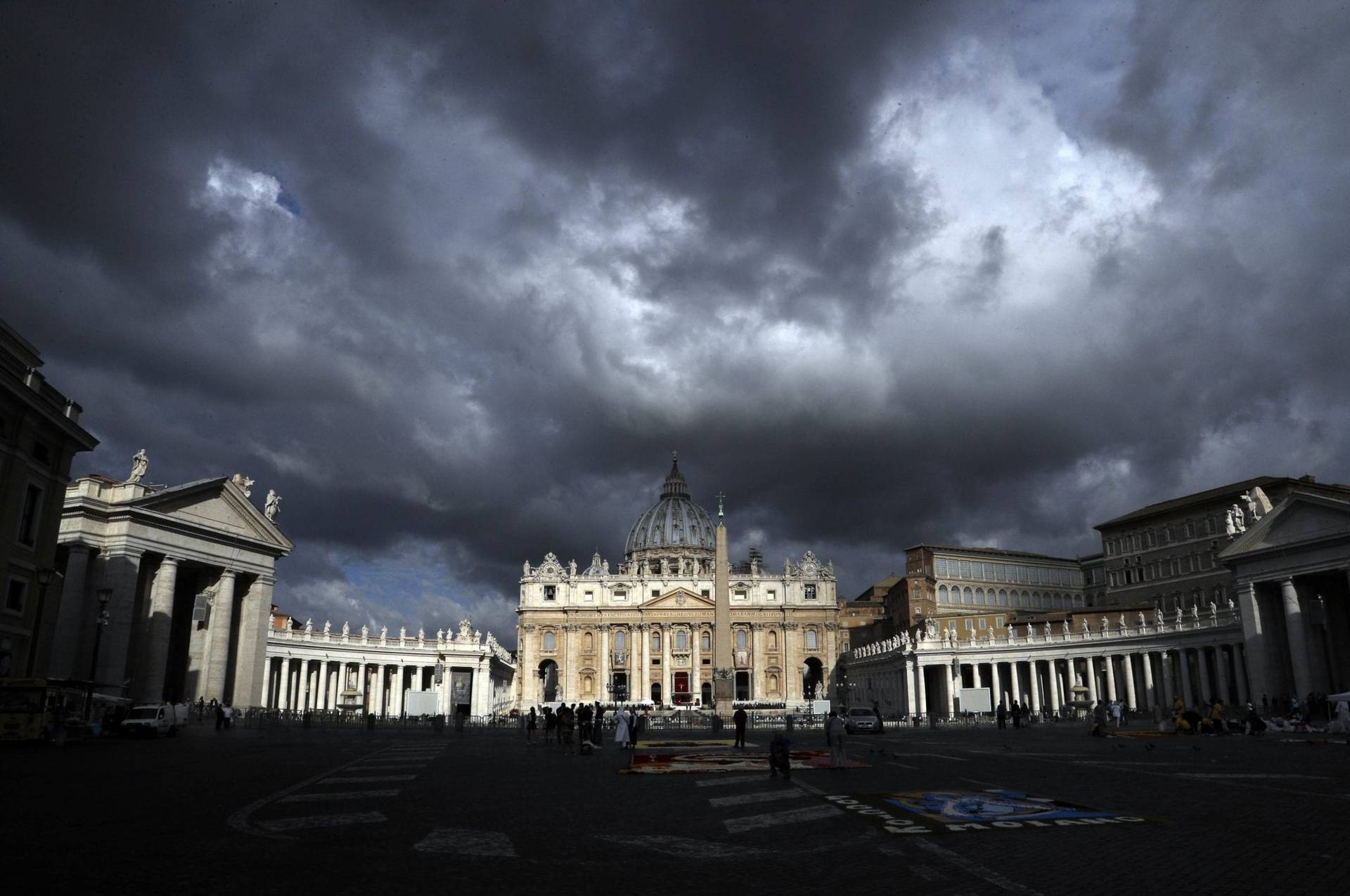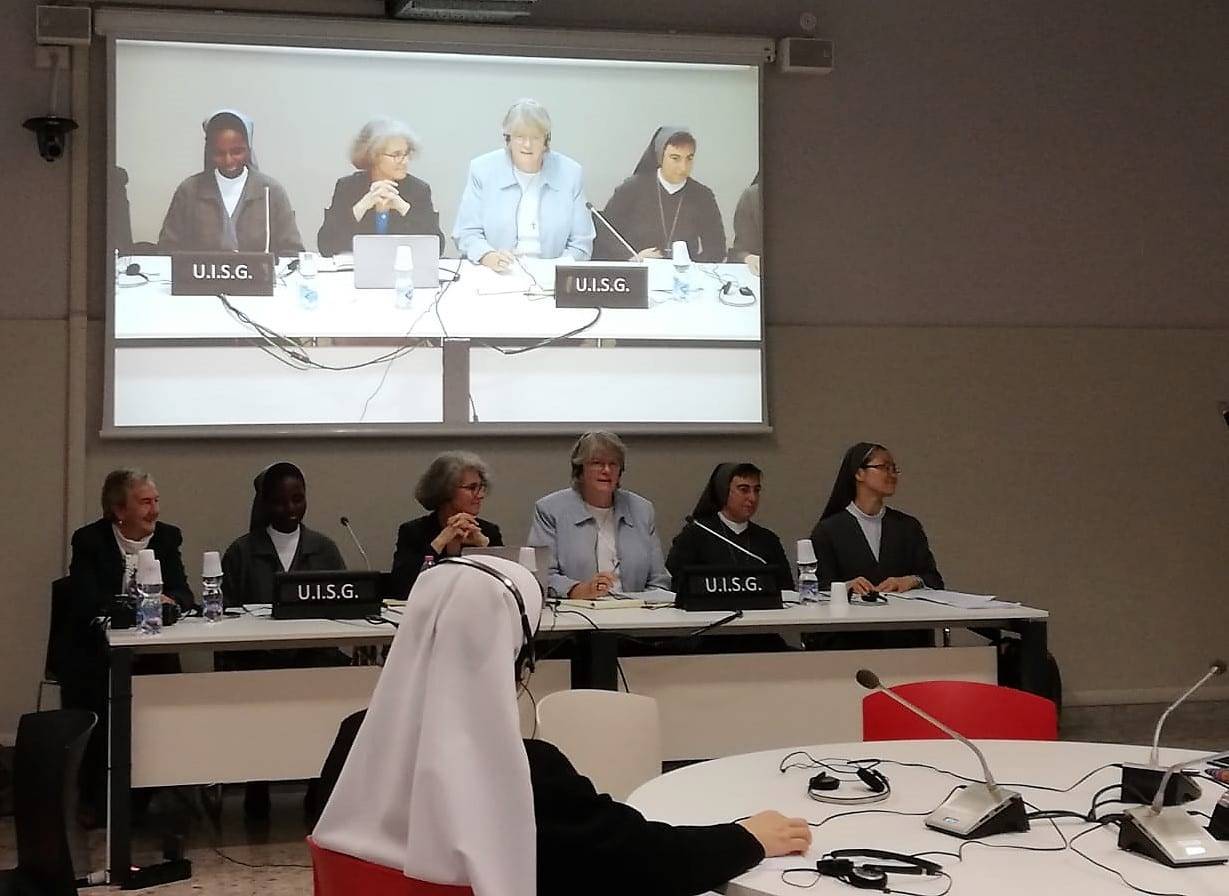ROME – On the same day the Vatican announced that Pope Francis has ordered a thorough study of the case of ex-Cardinal Theodore McCarrick, the pontiff told a group of young people that the Church sometimes isn’t coherent, “speaking about the beatitudes and then falling into the most scandalous, prince-like clericalism.”
“If you’re a Christian, take the beatitudes and practice them,” Francis said. “If you’re a man or a woman who gave his or her life, consecrated, and wants to live like a Christian, follow the path of the beatitudes. Not [the path] of worldliness and clericalism, which is one of the ugliest perversions of the Church.”
Pope Francis’s words came at an event titled “Us for – Unique, supportive, creative,” held in the Vatican’s Paul VI Hall as part of the Oct. 3-28 Synod of Bishops on young people, faith and vocational discernment. The first rows were reserved for the bishops, young people and auditors participating in the summit.
The event opened with an artistic presentation, including music and dance, videos and several stories from young men and women from all over the world, who described the search for their personal identity, relationships and life as a service and gift to others.
The pontiff told young people they too were called to be coherent in their lives.
Speaking off-the-cuff for a few minutes, Francis mostly decided to stay away from answering questions posed to him by the young people, saying that in doing so he would “annul the synod.”
“The answer has to come from everyone, from our reflection, our discussion,” Francis said. “Above all, they have to be answers given without fear.”
The pontiff did urge the young people, however, to avoid being “dragged [down] by ideological colonization that puts ideas in your heads that enslave you. Remember: You’re free, you have no price tag. Fall in love with this freedom, which is the freedom that Jesus offers you.”
Sharing advice he’s given to similar crowds before, Francis called on young people to allow themselves to be disconnected from the web, saying that it’s become normal to see families sitting at a table where everyone is speaking with people on their phones, instead of engaging each other.
Francis also said that today, “populisms” have become fashionable, and they have nothing to do with the people: “Popular is the culture, expressed through art, science, even the way people celebrate. Populisms are the opposite.”
Among the many elements of the two-hour event was a video presenting an initiative in the Italian youth detention center of Casal del Marmo to get young inmates involved with art projects. Francis visited the prison on Holy Thursday of 2013.
The video was preceded by the story of Daniel, a young man who told the pope about his teen years of crime, detention, jail and of meeting a chaplain who helped him take responsibility for his actions, to the point that he now attends the University of Milan.
“Don’t forget us during the synod,” he told the over 300 synod fathers who were present at the event. “Don’t forget those of us who spent time in prison, who’ve been abandoned. Help us find a Gospel that is alive, expressed in the faces of joyful witnesses.”
Also addressing the pontiff and the thousands gathered in the Paul VI Hall was Aziz, a young Iraqi man who told the story of his city being taken over by the Islamic State in 2014 and having to flee with his family: “We had to choose between becoming Muslims, paying a tax or being beheaded. So, we ran.”
“I cannot describe to you the cry of the refugees along the way… the tears in the eyes of the military,” he said.
He said that he remembers crying to Christ and asking him “Why have you forsaken me?” and then Aziz realized that he had been abandoned like Jesus on the cross.
“I entrusted myself to Him,” he said.
Aziz also mentioned the situation of the Yazidi, another minority heavily persecuted by ISIS. “They needed help more than we did” because the Yazidi weren’t allowed to escape but were enslaved.
In addition, there were stories of struggle, of overcoming challenges such as bullying and addiction to porn, drugs and alcohol; stories of Syrian refugees living in camps in Lebanon; the witness of religious sisters who found their vocation to religious life unexpectedly, and also that of those who struggle to find their faith.
Entering the hall, Francis was visibly happy, kissing babies and shaking hands. He spent a few minutes with two girls who defied security restrictions to present him with drawings they’d made for him.
















